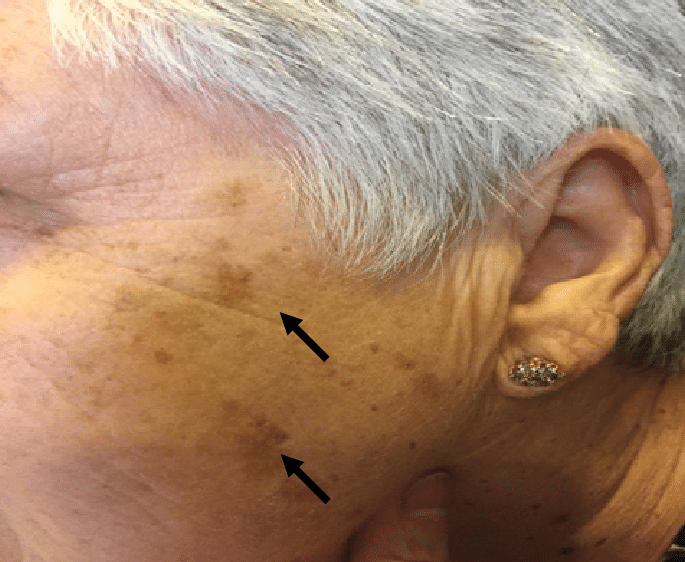Addison's Disease
content of this page
1- Introduction
2- Physiological Overview
3- Symptoms
4- Treatment
Introduction

Physiological Overview
Addison’s disease, or primary adrenal insufficiency, arises from dysfunction or damage to the adrenal glands, typically due to autoimmune disorders where the body’s immune system mistakenly attacks these glands. The adrenal glands, located above the kidneys, play a vital role in producing hormones essential for maintaining overall health and responding to stress.
Physiologically, Addison’s disease impacts hormone production from the adrenal cortex, leading to a deficiency primarily in cortisol and sometimes aldosterone. Cortisol helps regulate metabolism, immune response, and stress management, while aldosterone helps maintain electrolyte balance and blood pressure. Without adequate cortisol, individuals may experience fatigue, weakness, weight loss, and low blood sugar (hypoglycemia). The lack of aldosterone can lead to dehydration, electrolyte imbalances (such as high potassium levels), and low blood pressure.

Symptoms
-
Chronic fatigue and muscle weakness: Persistent tiredness and weakness, even with adequate rest.
-
Weight loss: Unintentional weight loss, despite normal or increased appetite.
-
Low blood pressure (hypotension): Dizziness, fainting, or lightheadedness, especially when standing up quickly.
-
Salt craving: Intense cravings for salty foods due to low aldosterone levels, which affect sodium balance.
-
Darkening of the skin (hyperpigmentation): Areas of skin may become darker, especially in skin folds, scars, lips, and mucous membranes, due to increased production of melanin stimulated by high levels of adrenocorticotropic hormone (ACTH).
-
Gastrointestinal symptoms: Nausea, vomiting, abdominal pain, and diarrhea.
-
Low blood sugar (hypoglycemia): Feeling shaky, weak, confused, or irritable due to inadequate cortisol levels to maintain blood sugar levels.
-
Craving for carbohydrates: Especially during episodes of hypoglycemia.
-
Muscle or joint pains: Aches and pains in muscles and joints.
-
Mood changes: Irritability, depression, or decreased ability to handle stress.
-
Menstrual irregularities: Loss of menstrual periods in women.
-
Hair loss: Especially on the scalp, eyebrows, or eyelashes.
-
Decreased libido: Loss of interest in sex.
-
Frequent infections: Due to compromised immune function.
Treatment
Hormone Replacement Therapy:
- Corticosteroids: The mainstay of treatment involves daily oral administration of glucocorticoids, such as hydrocortisone (cortisol replacement) or prednisone. These medications help replace the cortisol that the adrenal glands are unable to produce. Dosage adjustments may be needed during times of stress or illness.
- Mineralocorticoid replacement: Many individuals with Addison’s disease also require aldosterone replacement. This is typically managed with fludrocortisone, which helps maintain salt and water balance in the body and regulates blood pressure.
Monitoring and Adjustments:
- Regular monitoring of hormone levels and clinical symptoms is essential to adjust medication dosages as needed. This helps prevent under- or over-replacement of hormones, which can lead to complications.
- Blood tests, including cortisol levels and electrolyte levels (especially sodium and potassium), are routinely done to assess hormone balance and detect any abnormalities.
Management of Stressful Situations:
- During times of illness, injury, surgery, or other stressful events, individuals with Addison’s disease may need to temporarily increase their corticosteroid doses to prevent adrenal crisis. This is typically guided by a healthcare provider based on individual circumstances.
Lifestyle Considerations:
- Maintaining a balanced diet and adequate hydration are important for overall health and to manage symptoms related to salt craving and electrolyte imbalances.
- Wearing a medical alert bracelet or necklace and carrying an emergency kit with injectable hydrocortisone can help in case of adrenal crisis.
Education and Support:
- Education about the disease, its symptoms, and management strategies is crucial for individuals and their caregivers.
- Regular follow-up visits with healthcare providers, including endocrinologists or specialists in adrenal disorders, are important for ongoing management and adjustments to treatment plans.